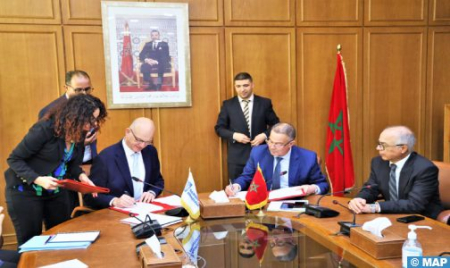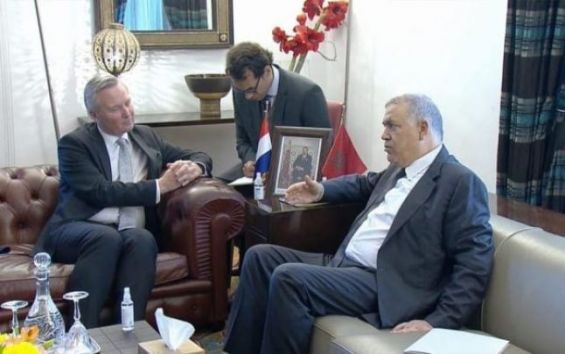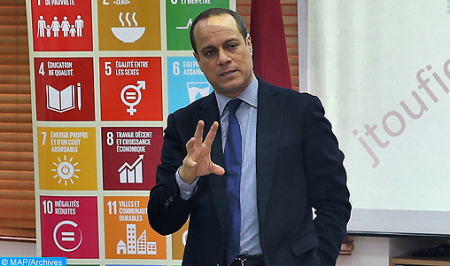The World Bank has granted Morocco an additional funding of $250 million to finance the Support to Education Sector Program.
This additional funding will bring the total funding of the program to $750 million.
The related loan agreement was signed, Wednesday in Rabat, by the Minister in charge of the Budget, Fouzi Lekjaa, and the Director of the Maghreb and Malta, Middle East and North Africa Department at the World Bank, Jesko Hentschel, in the presence of the Minister of National Education Chakib Benmoussa.
Speaking at the signing ceremony, Lekjaa stressed the importance of this agreement which aims to continue to accompany the achievements of the educational reform in the Kingdom, and to meet the challenges of this reform.
This additional funding will also provide $12 million in technical support to help Morocco achieve the ambitious goals of the strategic roadmap.
For his part, Benmoussa highlighted the importance of this loan agreement which perfectly supports, he said, the implementation of the strategic roadmap 2022-2026 of the Ministry of National Education, Preschool Learning and Sports.
The program aims to establish an enabling environment for the delivery of quality early childhood education services, improve teaching practices in basic education and strengthen management and accountability capacities along the education service delivery chain.
Hentschel noted that the agreement aims to support the Kingdom’s efforts in improving the learning environment and capabilities of children.
This additional funding will make it possible to focus on quality while counting on important results on the quantitative side with “100,000 additional preschool children and 12,000 teachers,” he said.
The program is structured around three components, focusing on quality preschool education services through the implementation of a training program for preschool educators; improvement of teaching practices in basic education through a coherent, coordinated and comprehensive training model, including online training courses and a technological platform for knowledge sharing; and strengthening management and accountability capacities along the education service delivery chain by digitizing data collected at the school level in the education management and information system (MASSAR).



